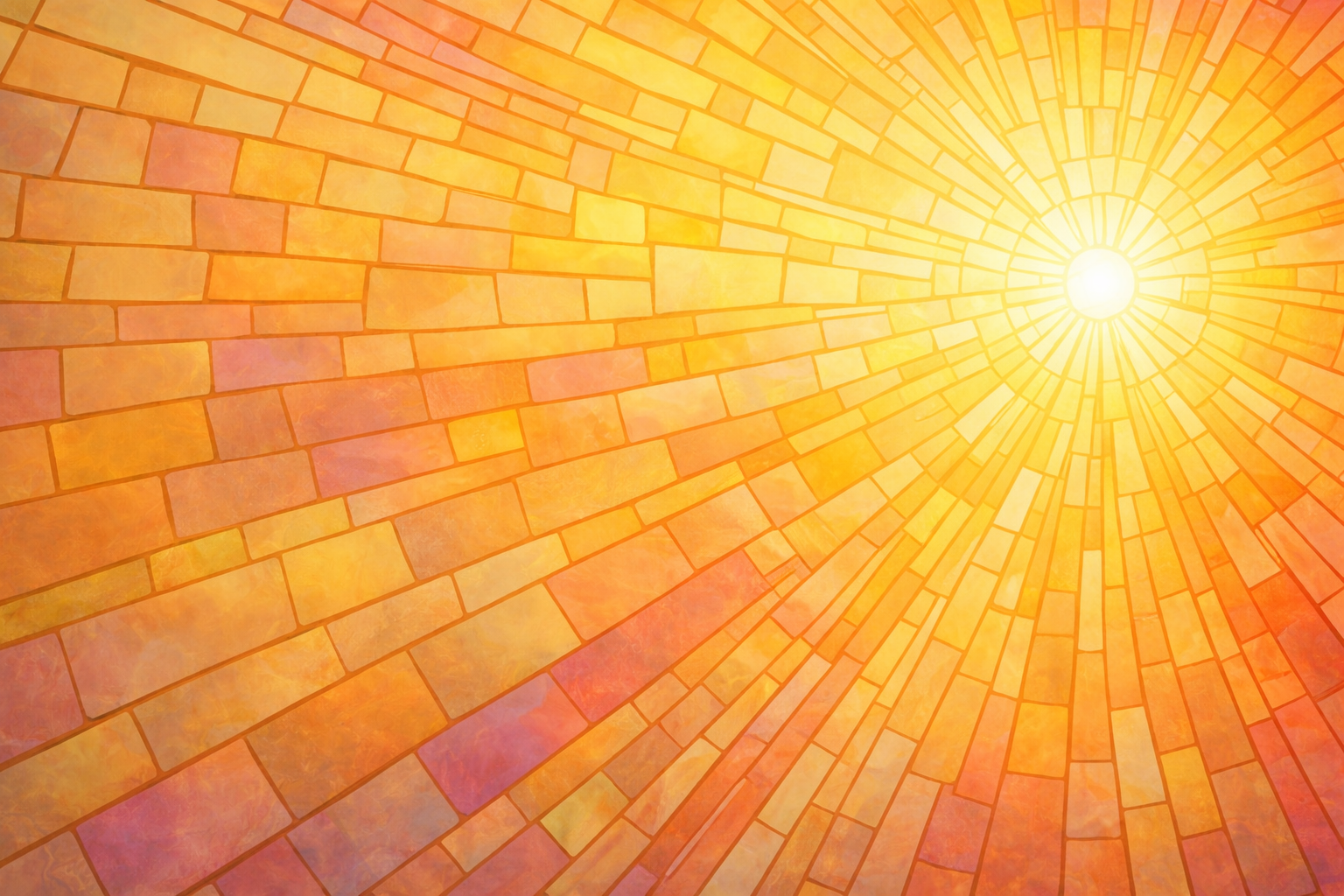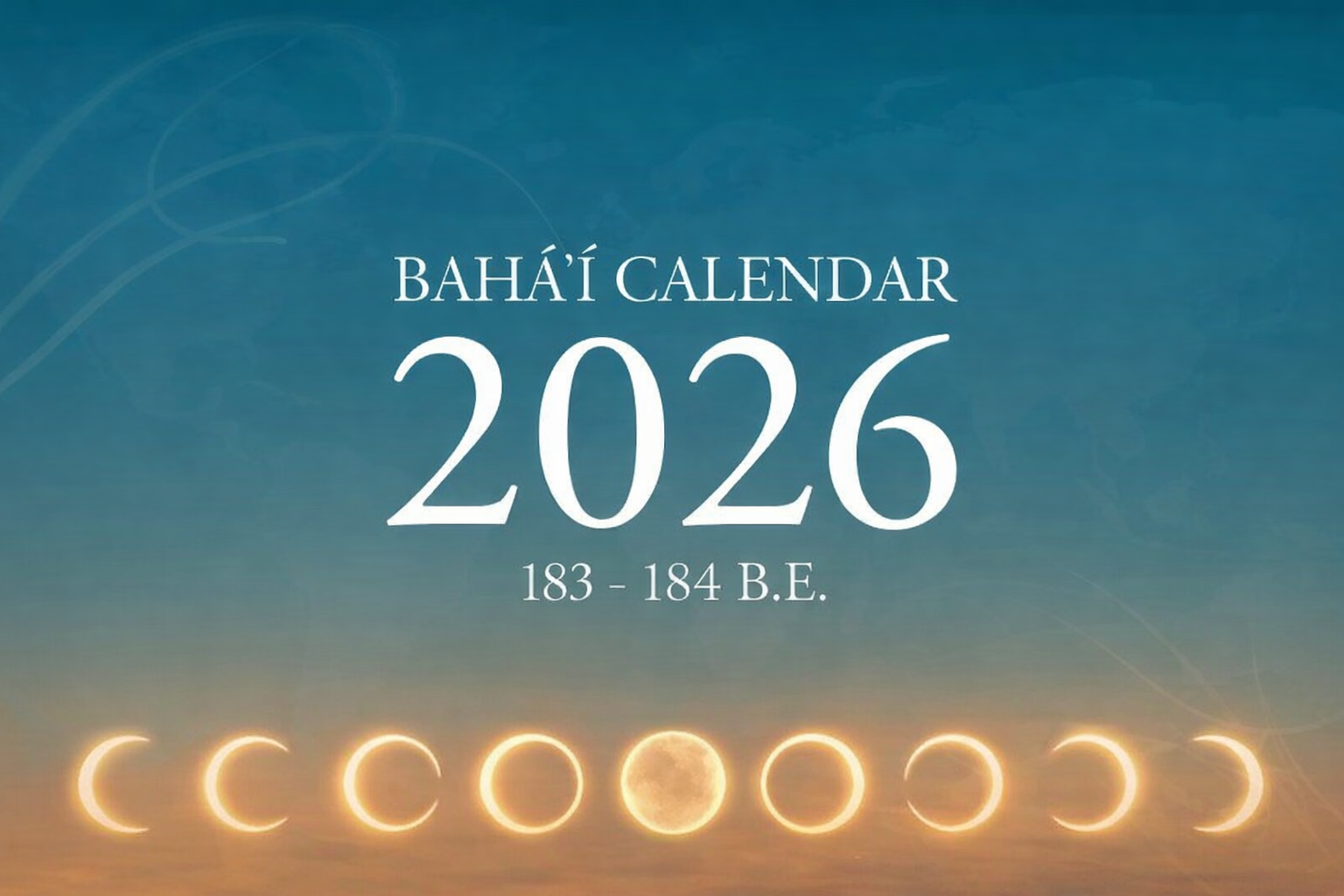BAHÁ’Í RELIGIOUS PRACTICES
Our Spiritual Life and Worship
As an independent world religion, the Bahá’í Faith has its own sacred scriptures, spiritual practices, and religious laws revealed by Bahá’u’lláh. Bahá’ís around the world follow these practices as part of our covenant with God:
Daily Prayer and Meditation
Bahá’ís are called to pray daily, reciting from three obligatory prayers revealed by Bahá’u’lláh. Prayer and meditation form the foundation of our spiritual life, connecting us to God and strengthening our souls.
Study of Sacred Scripture
Regular study of the writings of Bahá’u’lláh, the Báb, and ‘Abdu’l-Bahá is essential to our spiritual growth and understanding of God’s will for this age.
The Nineteen Day Feast
Every nineteen days, the Bahá’í community gathers for our principal community meeting, combining worship, consultation on community affairs, and fellowship. This is a gathering for Bahá’ís, though seekers are sometimes invited to the devotional portion.
Annual Period of Fasting
Each year, Bahá’ís between ages 15 and 70 observe a 19-day fast from sunrise to sunset (March 2-20), a period of spiritual renewal and reflection.
Observance of Holy Days
We celebrate nine Holy Days throughout the year, commemorating the birth, declaration, and passing of the central figures of our Faith. Work is suspended on these sacred occasions.
Pilgrimage
When able, Bahá’ís make pilgrimage to the Bahá’í World Centre in Haifa, Israel, visiting the shrines of Bahá’u’lláh and the Báb.
Service to Humanity
Work performed in the spirit of service is considered worship. Bahá’ís are called to dedicate their lives to the betterment of the world as an expression of faith.
Marriage and Family Life
The Bahá’í Faith has its own marriage ceremony, and families are encouraged to raise children with spiritual education and moral values based on Bahá’í teachings.
OUR CALENDAR
The Baha’i calendar consists of 19 months of 19 days each, with the addition of intercalary days known as Ayyám-i-Há. . We also have special intercalary days known as Ayyám-i-Há, which vary according to the vernal equinox in the northern hemisphere. Each of the 19 months is named after a divine attribute, inviting us to reflect on the qualities of God throughout the year.
Our Bahá'í New Year, or Naw-Rúz, joyfully coincides with the vernal equinox, marking the arrival of spring and the renewal of life. As we celebrate Holy Days, these dates remain fixed within our solar calendar, with the exception of the Festival of the Twin Birthdays—the Birth of the Báb and the Birth of Bahá'u'lláh—which gracefully shifts each year based on the lunar cycle.
In the Bahá'í tradition, a day begins at sunset and ends at the following sunset. This means that our Nineteen Day Feasts, Holy Days, and other significant occasions are observed from sunset on the eve of each corresponding Gregorian calendar date. For instance, if Naw-Rúz falls on March 21, we celebrate from sunset on March 20 until sunset on March 21.
Bahá’í Holy Days – 2026
Naw-Rúz 2026: begins at sunset, March 20, 2026 (start of Bahá’í year 183 B.E.)
Ayyám-i-Há February 25 – March 1, 2026
Intercalary days set aside for hospitality, charity, generosity, and joy. These days prepare the community spiritually for the Fast.
Nineteen Day Fast March 2 – March 20, 2026
A period of spiritual reflection, prayer, and self-discipline. Adult Bahá’ís abstain from food and drink from sunrise to sunset.
Naw-Rúz (Bahá’í New Year) March 21, 2026
The Bahá’í New Year, celebrated at the vernal equinox. It marks renewal, rebirth, and the beginning of a new spiritual year.
First Day of Ridván April 21, 2026
Commemorates Bahá’u’lláh’s declaration of His mission in the Garden of Ridván in 1863. This is the holiest festival in the Bahá’í Faith.
(Work suspended)
Ninth Day of Ridván April 29, 2026
Marks the arrival of Bahá’u’lláh’s family in the Garden of Ridván, symbolizing unity and fulfillment.
(Work suspended)
Twelfth Day of Ridván May 2, 2026
Commemorates Bahá’u’lláh’s departure from the Garden of Ridván to begin His exile to Constantinople.
(Work suspended)
Ascension of Bahá’u’lláh MAY 29, 2026
Observes the passing of Bahá’u’lláh in 1892 near ‘Akká. It is a solemn time of prayer and remembrance.
(Work suspended)
Martyrdom of the Báb July 10, 2026
Commemorates the execution of the Báb in 1850. Observed with reverence and reflection on sacrifice and spiritual courage.
(Work suspended)
Birth of the Báb November 10, 2026
Celebrates the birth of the Báb, the Forerunner of Bahá’u’lláh, who prepared humanity for Bahá’u’lláh’s message.
(Work suspended)
Birth of Bahá’u’lláh November 11, 2026
Celebrates the birth of Bahá’u’lláh, the Founder of the Bahá’í Faith.
(Work suspended)
Day of the Covenant November 26, 2026,
Celebrates Bahá’u’lláh’s establishment of His Covenant and the appointment of ‘Abdu’l-Bahá as the authorized interpreter of His teachings.
Ascension of ‘Abdu’l-Bahá November 28, 2026
Commemorates the passing of ‘Abdu’l-Bahá in 1921, remembered for His life of service, compassion, and leadership.

